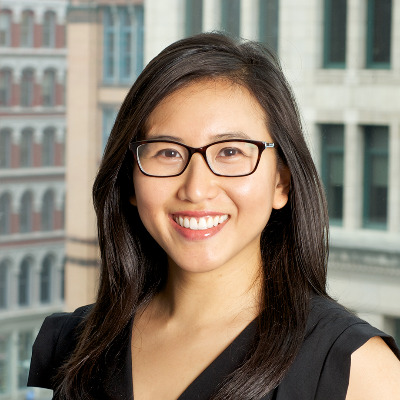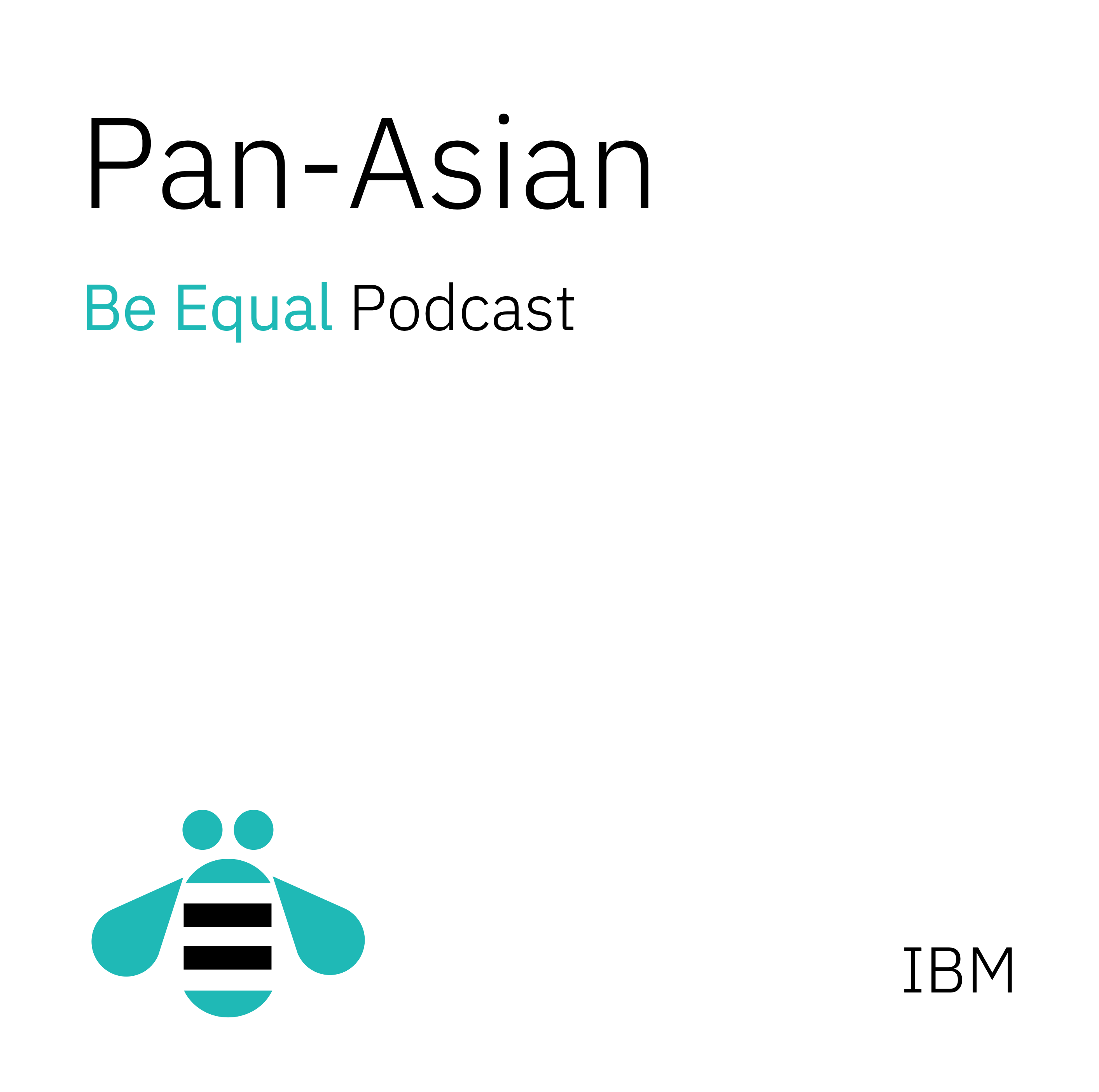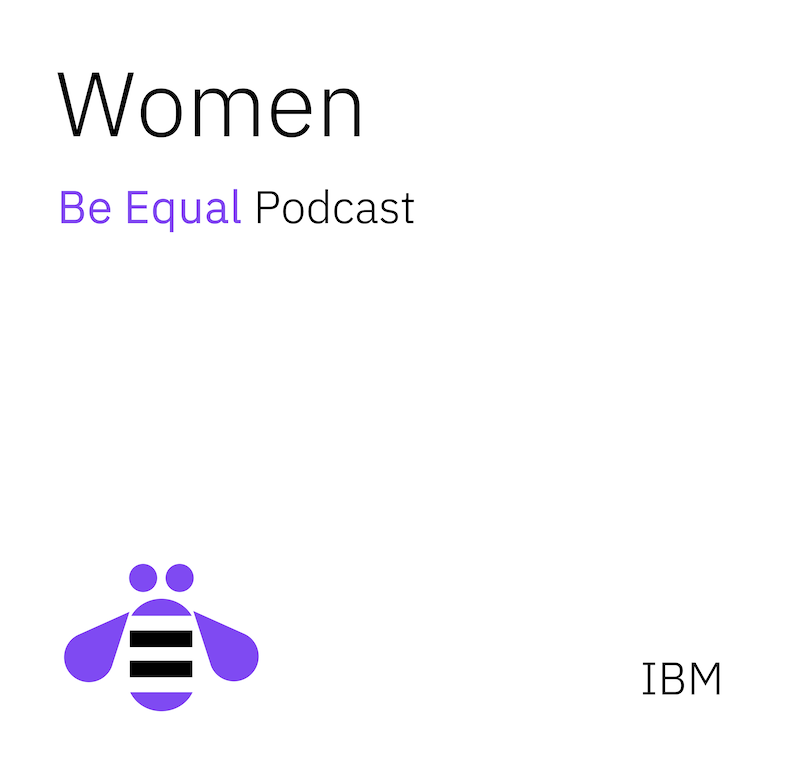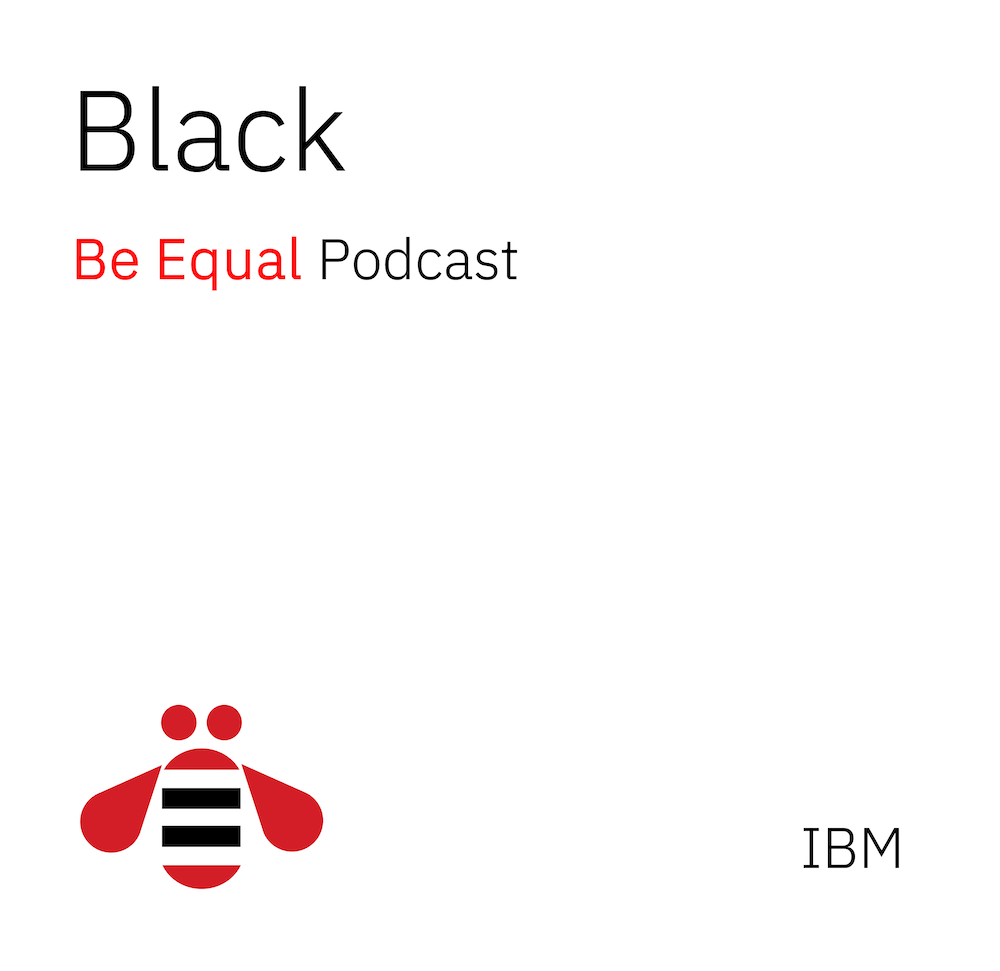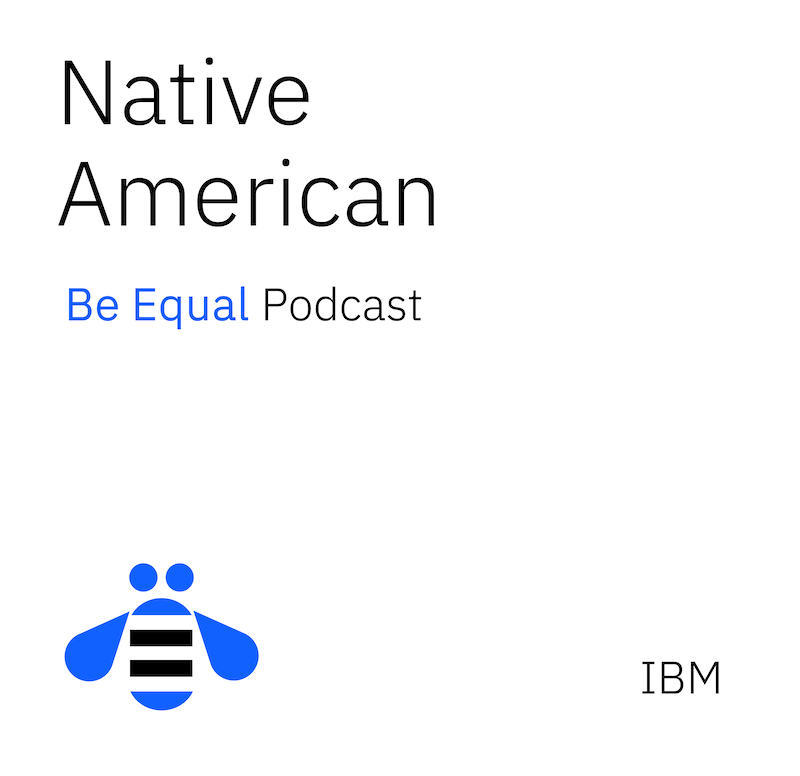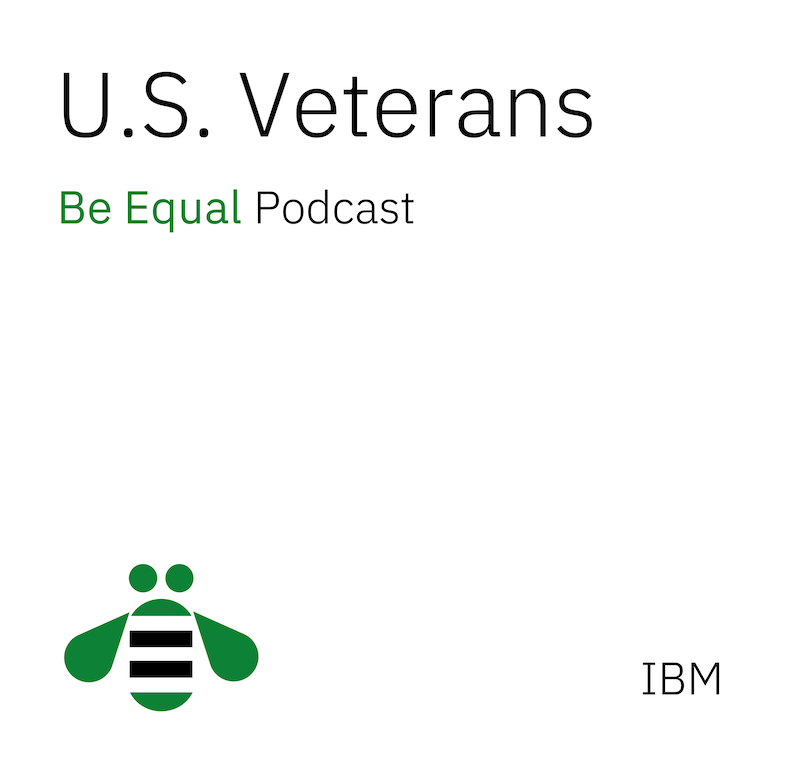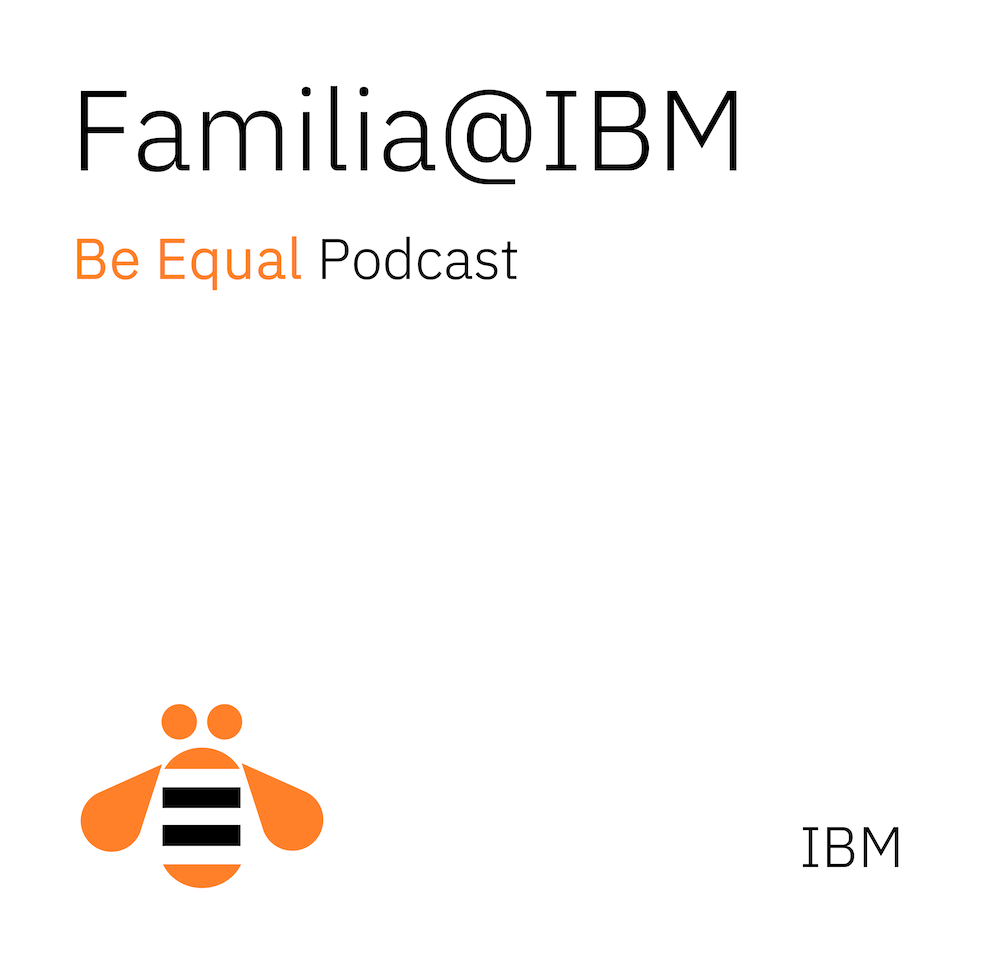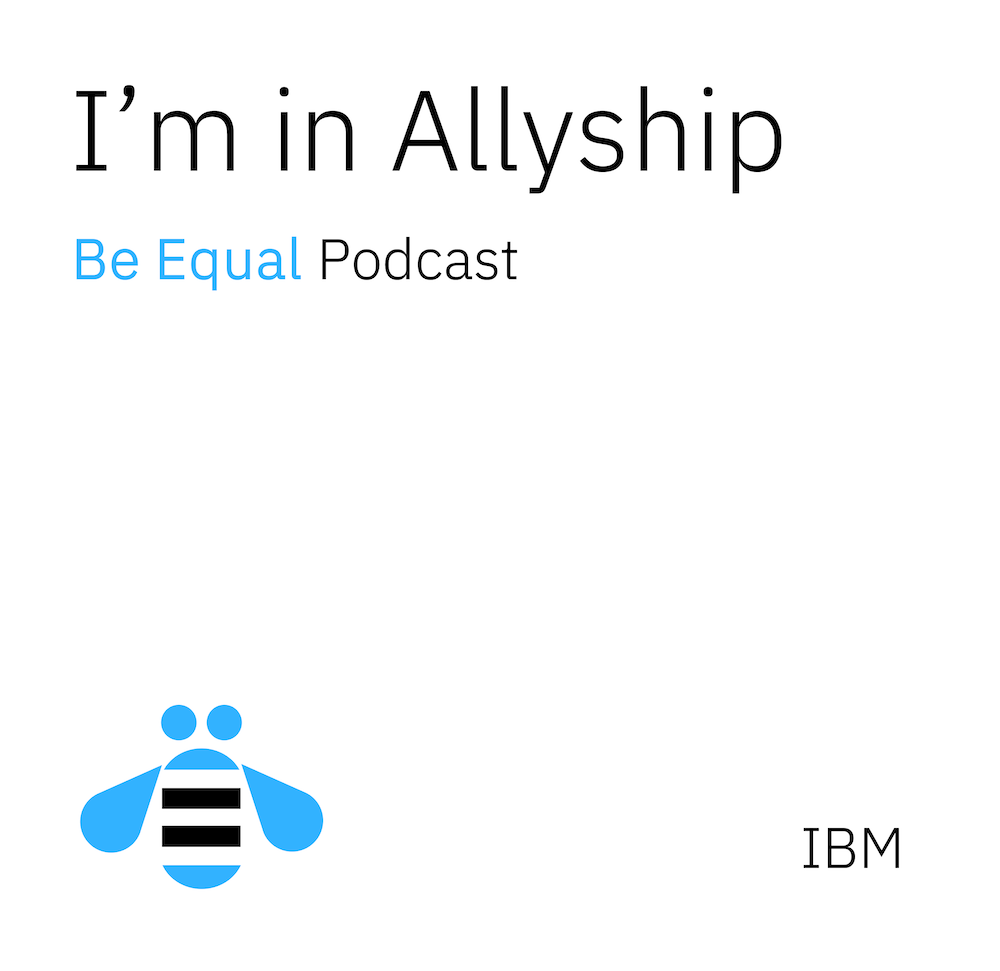Pan-Asian – What's your name?
- 0.5
- 1
- 1.25
- 1.5
- 1.75
- 2
Jill Stewart: Hello, and welcome to our IBM Be Equal podcast. I'm Jill Stewart, the Director of Diversity and Inclusion at IBM. Thanks for joining our conversation around DNI to learn how we at IBM are continuously looking for ways to expand equality and allyship across the enterprise. We have eight DNI communities focused on making a difference for underrepresented groups, and here is an opportunity for you to hear directly from our IBMers. Every month we have a new episode. So enjoy.
Joy Dettorre: So hello, and welcome to our second Be Equal podcast, where IBMers will have the opportunity to be vocal, be powerful, be proud, and be heard, and share their stories of tenacity, grit, perseverance, and courage. Our podcast series explores seemingly simple issues we all face but don't often talk about out loud. I am your host, Joy Dettorre, and I'm the Global Diversity, Equity and Inclusion Leader at IBM. My pronouns are she and her, and I'm speaking to you today from South Florida, which is also known as the ancestral lands of the Miccosukee and Seminole nations. And I'm excited about today's podcast because today our listeners will hear from four IBM leaders, Courtney Fladger, Nancy Ngo, Warren Zhou, and Charlie Ung. And throughout today's conversation, our listeners will have the opportunity to associate their voice with their names. And while that is important in every podcast, what makes today especially significant is how our names play an essential role in our identities. So, Courtney, let's go ahead and start with you. You are the D& I leader supporting the Pan- Asian community. And what our listeners may not realize is that at IBM we have established D& I Leadership Councils, which are aligned to our eight diverse communities. So now that we have that as a backdrop, Courtney, as the D& I leader for the Pan- Asian Council, you partner with IBMers to drive various initiatives which impact employee engagement. Can you tell me a little bit more about the structure of the D& I Leadership Council?
Courtney Fladger: Sure, Joy. And I think this is unique for IBM. A lot of companies have ERGs or BRGs. IBM does have BRGs, which operate on the local level, but IBM also has D& I Councils across each of our eight communities. So IBM's Pan- Asian Council, for example, is made up of myself, executive leaders, IBM squad leaders, and squad members as well who would be IBM volunteers. And we collectively partnered together to plan a lot of different events and initiatives throughout the company. So when I first started this role, one of the first things that we did was have listening sessions with IBM's Pan- Asian community members so that we could better understand the community's needs. And from there, we identified those three community initiatives and created three new squads to align with those initiatives.
Joy Dettorre: So there are a few things, Courtney, that I actually heard you say. First, you used the term BRG, or business resource groups. For people that are not sure what we mean by business resource groups, business resource groups are simply one way that IBM scales our D& I priorities. And, Courtney, I have the opportunity to work with you every day, so I wanted to say thank you. Thank you for your tenderness, your compassion, and your creative leadership.
Courtney Fladger: Thank you, Joy.
Joy Dettorre: Next I would like to introduce Nancy Ngo. Nancy is part of IBM's corporate communications team and plays an important role in our ESG and social impact communications. So, Nancy, as part of the Pan- Asian Council's Identity and Eminent Squad, you created the My Full Name Is campaign. Can you elaborate a little bit more about the campaign?
Nancy Ngo: So My Full Name Is campaign is a series of IBMer personal stories that celebrate the breadth of diversity across the Pan- Asian and broader IBM community by telling the name, origin, and evolution stories of its members. The goal of the campaign is to provide a forum for IBMers to fully embrace their cultural identities while also learning about other cultures to find ways to better treat each other, starting with appreciating the richness of our different names. And it comes down to our names play a very special role in our lives. Our identities often start with our given names and can evolve over time as our names change. And sometimes we confront ways our names may not fit seamlessly into different environments.
Joy Dettorre: So, Nancy, you shared a little bit about the forum and how names are often an expression of our cultural identities, but I have one last question for you. Can you tell us the creative inspiration behind the genesis of the idea?
Nancy Ngo: The way that this idea came up was really from feedback from the Pan- Asian community. As the rise of anti- Asian violence brought the community together and we brainstormed what are some small, significant ways that we can try to make IBM a more inclusive place. And what came up several times was can people or colleagues, our leaders, just learn to say our names correctly? So it became a campaign where we gave the opportunity in some forums to share the origin and evolution stories of names. So I know this is not something that is unique to IBM. There's been a lot of different places that have had similar goals. I've heard of an Instagram campaign that also did something differently, and places like LinkedIn have given the opportunity to share pronunciations of names. But this has been something that the series has really resonated across IBM beyond just the Pan- Asian community.
Joy Dettorre: And so I wanted to say thank you, Nancy, for your vision and for making this experience a reality for Pan- Asian IBMers. But there is something that you said that was so modest and yet so profound, how something as simple as pronouncing somebody's name correctly creates an experience of inclusion for that person. So I want to challenge everyone who is listening to us to take this critical step. Come on, we can do this. We can take a moment to learn, practice, and articulate someone's name correctly. So our third speaker for today is Warren Zhou. Warren is a product manager in our software division. So I wanted to say welcome, Warren.
Warren Zhou: Thanks, Joy. It's great to be here.
Joy Dettorre: Now, Warren, I understand that you were the Squad Leader for the Pan- Asian Council's Identity and Eminent Squad. And as part of this campaign, not only did IBMers create blogs about their names, but your squad hosted a Say My Name open mic event. Now for me, that would mean channeling my inner diva, and I'm sure that there's plenty of that out there, but can you tell our audience more about the Say My Name open mic event that you hosted?
Warren Zhou: I have the privilege of working with Nancy Ngo on this. She really championed and spearheaded the initiative to have an in- person event. We held an event at the New York City Astor Place office, and it really served as a safe space for individuals from a really diverse and heterogeneous community to come together and connect beyond surface differences, sharing personal stories about their full names. We really focused on understanding and celebrating everyone's diverse backgrounds, and we created a really inclusive environment which fostered empathy, and I believe countered the negativity and fear associated with anti- Asian rhetoric and targeted physical attacks in recent years. I think the open dialogue really builds an atmosphere of trust and support, and people came away with a better sense of how to overcome potential barriers to mutual understanding within such a diverse community.
Joy Dettorre: Outstanding. And by the way, Warren, I do hope there's a part two of the open mic event, and there was much more we can say about that. First, there were a couple of things that you mentioned that I really want to focus on, the importance of creating a psychologically safe space where IBMers could share and express their personal stories about their names, because there really is a story behind every name. And you also mentioned how these experiences created an atmosphere of empathy and trust, and I happen to be a big believer in both. Now, anytime you bring a diverse community together like the Pan- Asian community, there is complexity, there is a forum for deep understanding, and an opportunity to learn and grow. Can you share more about the experience and collaboration that transpired?
Warren Zhou: The beauty of the event is that people naturally came together, and many had never met in person before. We were united behind a common cause, and it really demonstrates the power of collaboration, communication, and inclusivity in light of the complexities of a diverse group of people like the Pan- Asian community. I just want to give a shout- out to all who were involved in planning, facilitating, and participating. It really created a super positive experience for both the in- person and online attendees and really fostered a deeper understanding of one another's unique experiences. I think we really contributed to an increasingly inclusive culture at IBM. The Asian community felt more empowered, and I think the event serves as a tremendous positive example. It myths all the negativity in the media that's been expressed in recent years.
Joy Dettorre: And, Warren, I love how you gave everybody a big shout- out. So for anybody who was not listening to the Be Equal podcast, they missed their shout- out, so go ahead and share it with all of your friends. So, Warren, once again, I wanted to thank you for your creative initiative by IBMers for IBMers. So thank you, Warren, for your tireless ambition. And our final speaker today is Charlie Ung. Charlie is part of our Global Corporate Events and Production team. And, Charlie, it is always great to be with you.
Charlie Ung: Thanks for having me, Joy.
Joy Dettorre: And, Charlie, I must tell you, when I heard your prior interview about the My Full Name Is campaign, I wasn't sure whether I wanted to cry or whether I wanted to pump my fist and salute to your family's bravery, resilience, and strength. But I know that there's more. And often we describe ourselves as multidimensional or intersectional human beings because not just one identity shows up. So before we get to your story, can you tell us a little bit more about Charlie Ung? Who is he?
Charlie Ung: I've always sort of been at the intersection of cultures my whole life. Ethnically, I'm Chinese and Cambodian, but since I immigrated to Canada as a refugee, I identify as Canadian. I was born in Vietnam, but I'm not ethically Vietnamese, and I'm also part of the Pan- Asian community, but in addition, I'm part of the LGBTQ + community, so lots of multidimensions and intersections there.
Joy Dettorre: Really reinforcing that we don't just show up as one identity in the workplace or socially with our friends and family. So, Charlie, you participated in the My Full Name Is campaign and gave a gripping account of how your parents fled Cambodia in 1975 and how they escaped to Vietnam. Can you tell us more about their journey and your ultimate passage to Canada?
Charlie Ung: So my mother, she's full Chinese, and her parents left Communist China and they ended up settling in Cambodia. There were 12 kids in her family and they were shop owners. And my mother was the second oldest of the 12, and the eldest girl. My father, he's half Chinese and half Cambodian. There were nine kids in his family. They were landowners outside the capital of Phnom Penh and ended up owning a lot of rubber plantation land. My father was fortunate enough to go to a French university where he spoke fluent French and he studied engineering and he met my mother through her older brother. So they were married in 1975. And that was also the same year that Phnom Penh fell to the Khmer Rouge. And my paternal grandfather at the time had started hearing stories of people being told to leave the city to go out to the countryside for a few days, but they were disappearing and never heard from again. And so he had decided that he wanted to split up the family. He had family members in Vietnam and Thailand and other parts of the country. And so my mother and my father, who were newly married, and my mother's younger sister, who it turns out now is autistic, the three of them were sent to my mother's aunt who was living in Vietnam. And at the time that the capitol fell, the Vietnamese government had started opening up their borders to anyone who was Vietnamese. It was time for them to leave Cambodia. And so my last name Ung, it was very similar to a Vietnamese last name Ng, and so when they got to the border, there was a party of three with the last name of Ng, and my mother claimed that that was us. And so that's how she ended up getting out of Cambodia and into Vietnam. This crazy story. And so we ended up in Vietnam for several years. And my father, being educated, he had spent a lot of time following current events, and he had started hearing that there was these refugee camps in Malaysia and in Hong Kong at the time. And the Red Cross and USAID were accepting refugees from these camps to go to other countries. And so in order to get passage, you had to get to these refugee camps. And so they had saved up money, and it was, at the time, several ounces of gold per person. And they bought passage on a cargo ship to go across the Gulf of Thailand to try to get to these refugee camps. So they set out one night only to be turned back around by storms. So then several days later they set out again. And when you're crossing the Gulf of Thailand, people were on fishing boats, people were on larger boats and smaller boats. But when you're crossing there, there was a lot of pirates that knew that these boats were filled with refugees, and so they would raid the boats over and over again and they would take belongings and they would rape and abduct women and children. And so it was a really tough go. And on average, I was reading earlier that pirates would board these ships three to four times in the two- week journey across the Gulf of Thailand. And so similar, on one of the final times, pirates boarded the ship again and they were dumping over the jugs of water and cutting open the bags of rice because they thought people were hiding jewelry and money in those containers and there was nothing left for them to take. And so they wanted to take me, who was a newborn at the time, I think I was probably six months old, and they had tried to take me from my mother. And, of course, she's hysterical and the pirates were having none of it. And they said, " Fine, we can't have him," and I got thrown overboard, and my father and a bunch of men jumped in after me. And so I was rescued back onto the ship and the pirates had gone. Several days later, they countered an oil freighter from Royal Dutch Shell. And so the captain of the ship that we were on was radioing back and forth with the captain of the tanker, and they got permission to take these refugees on board. But the one condition was that they had to claim distress. And so my father and a bunch of men on the ship and the captain of the cargo ship had to physically sink this ship before they could be taken on board the freighter. A couple more days later, we ended up in a small refugee camp off the coast of Malaysia. From there, we were transferred to a refugee camp in Kuala Lumpur. And my father, having been educated in speaking French, he was accepted by both Canada and France for refugee status. And so in the fall of 1979, we were accepted and we ended up in Canada. And that's how I ended up in Canada.
Joy Dettorre: Wow, Charlie, that was so powerful. And for anybody who is listening who happens to be in the movie business, I think that's an award- winning movie as well. I think we have something here, Charlie, not only the parallel that you are drawing about the experience, but the translated empathy to others who are fleeing their countries even today and seeking a safe place where they can begin again.
Charlie Ung: Exactly. There are so many Southeast Asian people born in the 70s and 80s that have a similar story to mine. But in modern day, this refugee experience, I was part of the experience known as the boat people. But modern day, the refugee experience right now is happening in Mexico and in Syria and in the Ukraine.
Joy Dettorre: Well, and you and I have always talked about the importance and the power of storytelling, and I think we learned that today. We discovered how through sharing stories, not only do we enjoy the collective experience that we all have together, but the importance that we have by building empathy, compassion, and understanding. So I wanted to end our Be Equal podcast today by thanking Courtney, Nancy, Warren, and Charlie. We value the impact of your stories and the undeniable impression that you have left with our listeners. And since we're talking about the significance of stories, I do feel compelled to share a quote from Brene Brown, and this is what she said in her latest book, " If we want to find the way back to ourselves and to one another, we need the language and the grounded confidence to both tell our stories and be stewards of the stories that we hear. This is the framework for meaningful connection."
DESCRIPTION
The second episode of our Be Equal Podcast highlights the IBM Pan-Asian Community and IBMers who share personal and powerful stories that invite us to reflect about how our names play a essential role in our identities. Being empathetic is crucial when navigating the complexities of highly diverse groups of individuals and their cultural background. Hear from Dr. Joy Dettorre, Courtney Fladger — D&I Leader for the Pan-Asian Community, Nancy Ngo — ESG and Social Impact, IBM Communications, Warren Zhou — Product Manager, IBM Software and Charlie Ung — Program Manager - Global Corporate Events and Production, IBM Marketing.
Today's Host
Jill Stewart
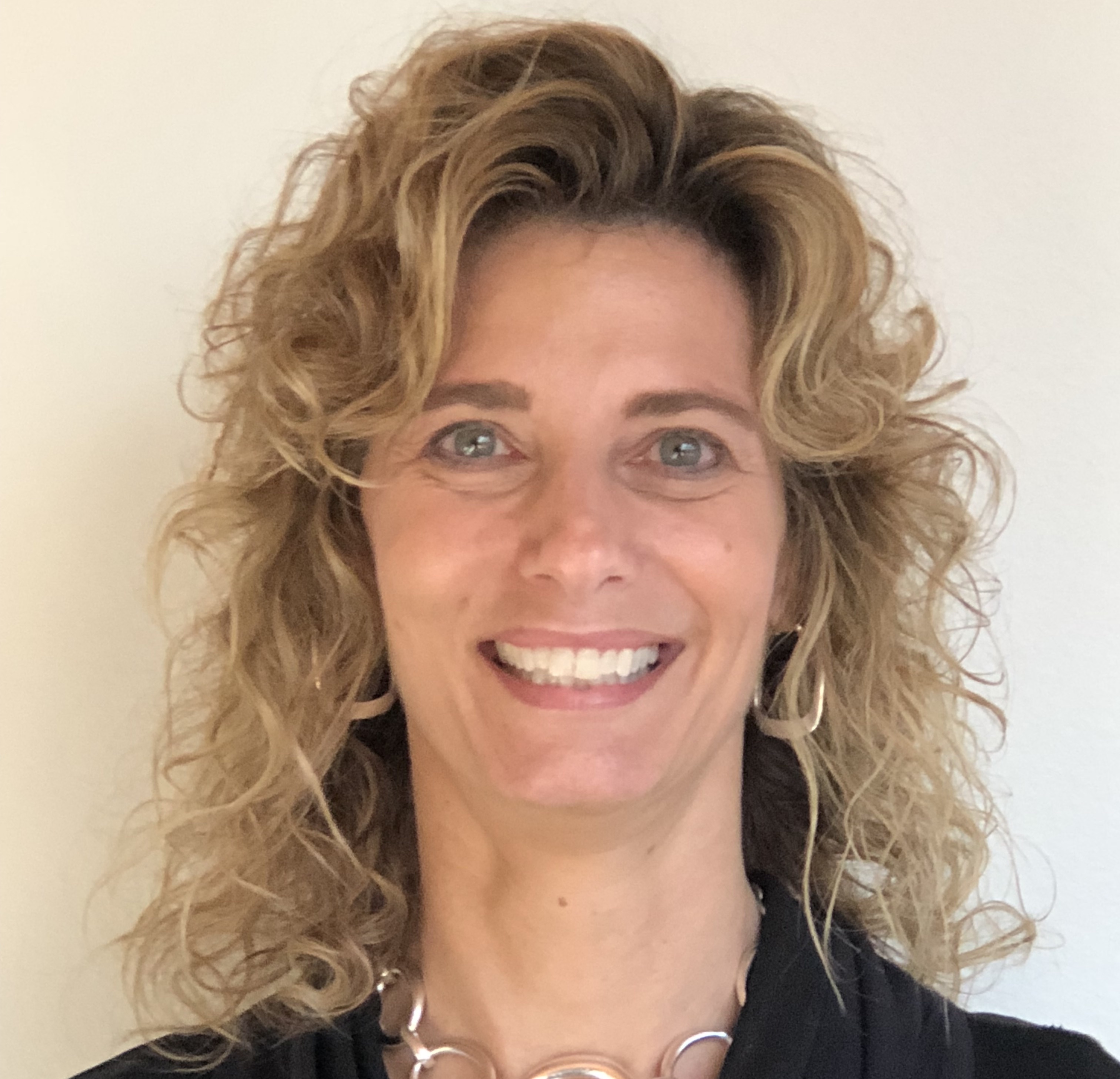
Joy Dettorre
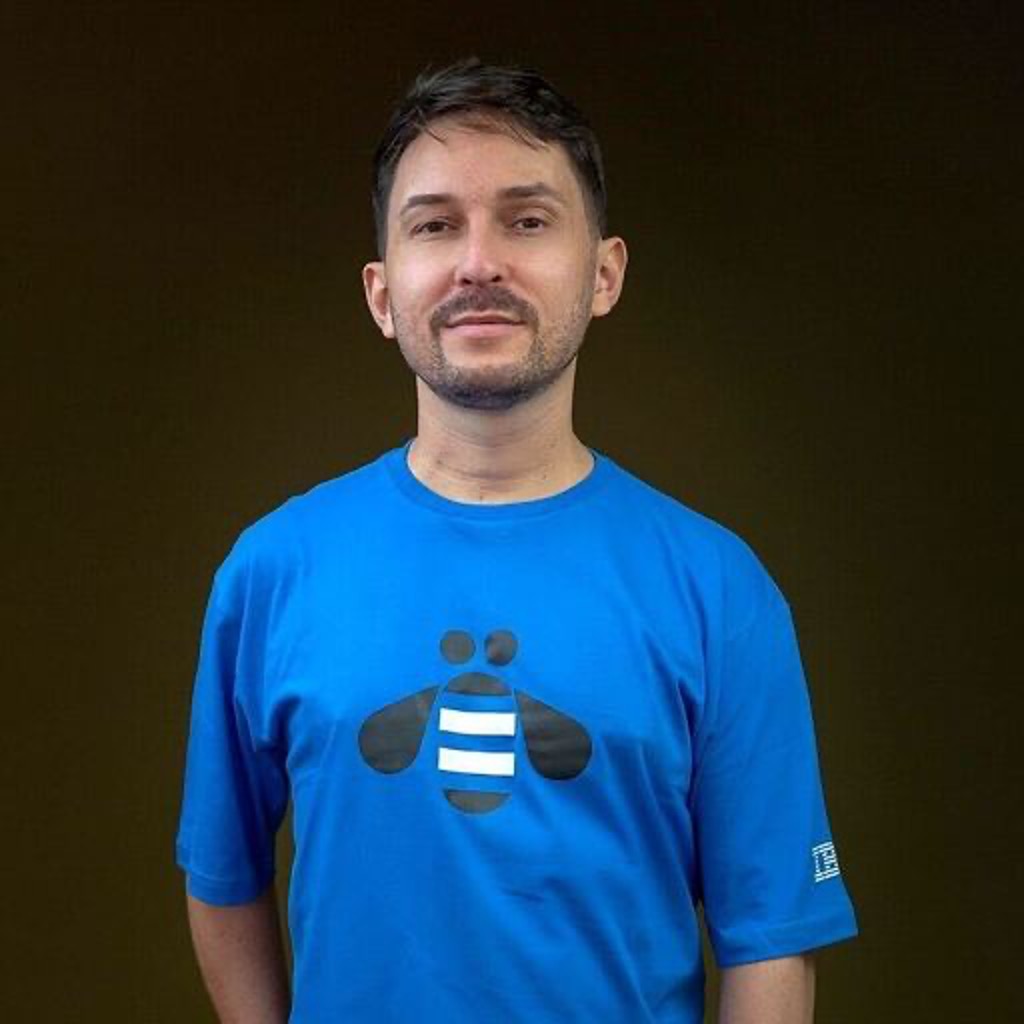
Luiz Lopes
Today's Guests
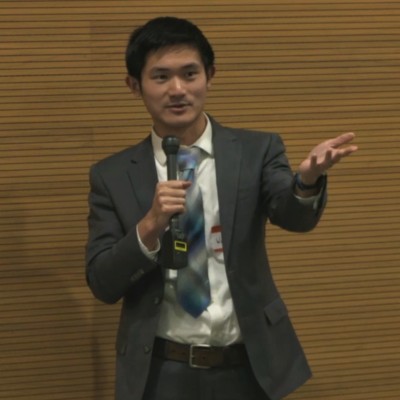
Warren Zhou
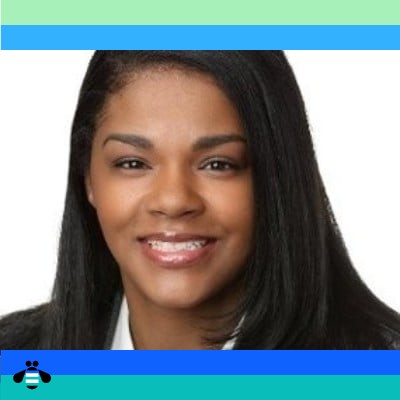
Courtney Fladger
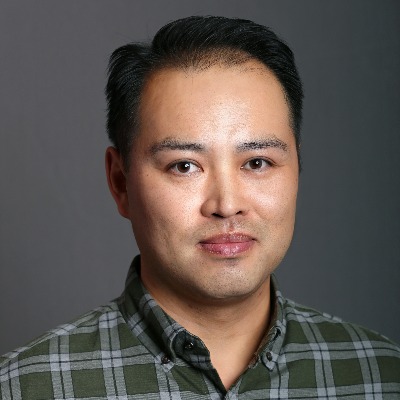
Charlie Ung
